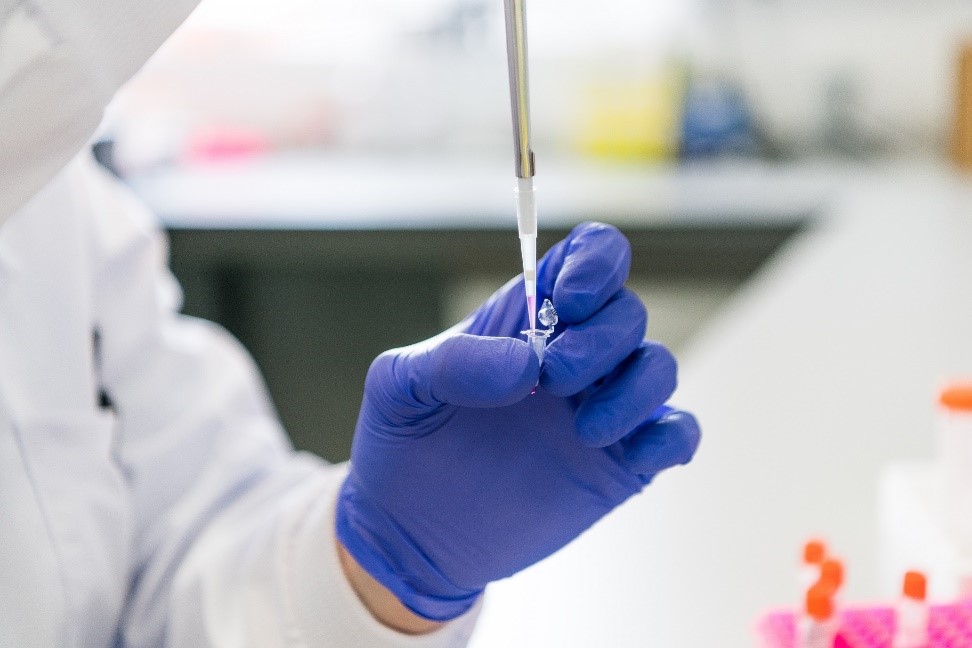Touchlight and LenioBio collaborate to advance rapid vaccine development
In a groundbreaking move towards accelerating pandemic response capabilities, Touchlight and LenioBio have announced a strategic partnership that could potentially transform the landscape of protein therapeutics development. This collaboration brings together two cutting-edge technologies in a bid to dramatically reduce the time required for vaccine production.
At the heart of this partnership lies the synergistic combination of Touchlight’s enzymatic doggybone DNA (dbDNA™) technology and LenioBio’s ALiCE® (Almost Living Cell-Free Expression) platform. Both technologies represent significant advancements in their respective fields, eschewing traditional cell-based methods in favour of more efficient, cell-free approaches.
Touchlight’s dbDNA is a novel form of DNA vector, characterised by its minimal, linear, double-stranded structure with covalently closed ends. What sets it apart is its production method – entirely enzymatic, eliminating the need for bacterial fermentation. This approach allows for rapid, scalable production of high-purity DNA, a critical component in protein and vaccine manufacturing.
Complementing this, LenioBio’s ALiCE technology offers a plant-based, cell-free protein expression system. This platform has already demonstrated its capacity to produce vaccine-relevant proteins within a remarkably short 48-hour timeframe, significantly outpacing conventional methods.
Addressing the DNA supply challenge
One of the key bottlenecks in rapid vaccine development has been ensuring a fast and reliable supply of DNA templates. This challenge becomes particularly acute in epidemic or pandemic situations where time is of the essence. The integration of Touchlight’s dbDNA into LenioBio’s production process aims to address this issue head-on, potentially establishing a seamless end-to-end manufacturing process for pandemic preparedness.
Tommy Duncan, Chief Operating Officer of Touchlight, expressed enthusiasm about the collaboration: “We are delighted to be working with LenioBio to further demonstrate the breadth of dbDNA applications. We are excited to supply our enzymatic DNA to be used in LenioBio’s cell free protein platform – the combination of two cell-free technologies is a perfect synergy and shows the power of engineering biology.”
This collaboration aligns closely with the ambitious goals set forth by the Coalition for Epidemic Preparedness Innovations (CEPI) in their 100 Days Mission. This initiative aims to develop vaccines against novel pathogens within 100 days of a threat emerging, a timeframe that would represent a paradigm shift in pandemic response capabilities.
LenioBio’s CEO, Andre Goerke, highlighted the potential impact of this partnership: “We’re thrilled to partner with Touchlight and explore the synergy between our innovative technologies to achieve unprecedented speed in scaled protein production. Having surveyed the DNA manufacturing landscape, it is clear to us that cell-free DNA amplification will greatly contribute, to produce vaccines within 100-Days and dbDNA is the field-leading innovation to support this ultra-rapid, advanced manufacture of essential vaccines and medicines.”
The potential implications of this collaboration extend far beyond the current focus on pandemic preparedness. By demonstrating the feasibility of ultra-rapid vaccine development and production, this partnership could pave the way for more agile and responsive approaches to addressing a wide range of infectious diseases.
Moreover, the cell-free nature of both technologies offers additional advantages in terms of scalability and flexibility. These systems can potentially be deployed more rapidly and in a wider range of settings compared to traditional cell-based manufacturing methods.





